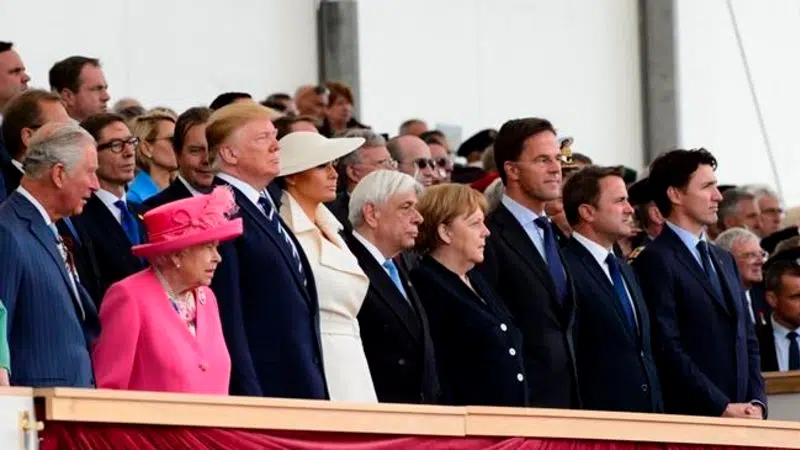
D-Day alliances still strong, leaders say at ceremony on eve of anniversary
PORTSMOUTH, United Kingdom — The terrible and tragic story of the Second World War played out in an elaborate ceremony in this city in southern England on Wednesday, mere metres from where thousands of Canadian, American and British soldiers boarded a flotilla of ships exactly 75 years earlier, on the eve of D-Day.
The ceremony, in which Canada and its role in helping free Europe from Nazi Germany figured prominently, was attended by Prime Minister Justin Trudeau, U.S. President Donald Trump, Queen Elizabeth and other world leaders as well as a handful of the veterans, most now in their 90s, who fought in that conflict to free the world of tyranny.
Trudeau and the other leaders not only paid homage to those who fought and died defeating Nazi Germany, but also promised to work together to ensure the horrors of that global conflict are never again repeated — an especially relevant message at a time of growing global instability.


